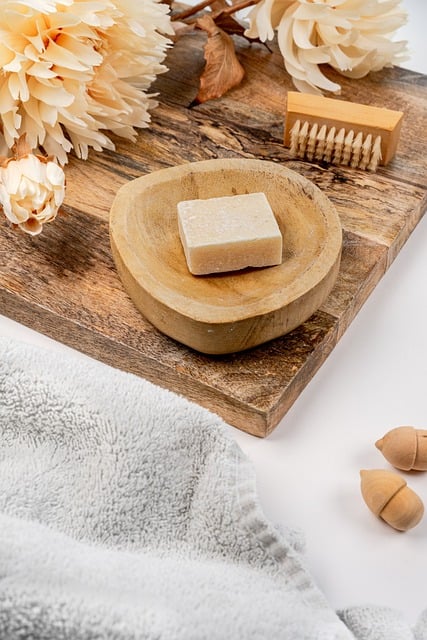Adopting a healthier lifestyle involves a holistic approach: consume a balanced diet with whole foods, engage in regular exercise, stay hydrated, practice mindful meal planning with portion control, and manage stress through mindfulness. Key tips include starting the day with water, aiming for 8-10 cups daily hydration, at least 150 minutes of weekly exercise, quality sleep (7-9 hours), and avoiding processed foods. These interconnected practices promote mental well-being, physical fitness, stress reduction, and an overall healthier lifestyle.
In today’s fast-paced world, prioritizing self-care is essential for maintaining both mental and physical well-being. Discover practical tips for a healthier lifestyle by exploring key components that form the foundation of your routine. From balanced diet advice and staying hydrated tips to regular exercise routines, effective stress management techniques, and quality sleep tips, each section provides actionable strategies to transform your wellness journey. Learn how to create a personalized holistic self-care routine that incorporates healthy meal planning, portion control strategies, and even tips for avoiding processed food.
- Nutrition and Hydration for Well-being
- – Balanced Diet Advice
- – Staying Hydrated Tips
- – Healthy Meal Planning
Nutrition and Hydration for Well-being

Adopting a nutritious and hydrated lifestyle is one of the most effective tips for a healthier lifestyle. Balanced diet advice includes incorporating a variety of whole foods such as fruits, vegetables, lean proteins, and whole grains into your meals. Regular exercise routines, whether it’s a mix of cardio and strength training or specific mindfulness practices like yoga, play a significant role in enhancing mental well-being and managing stress levels effectively.
Staying hydrated is another crucial aspect often overlooked but essential for optimal physical performance and recovery. Quality sleep tips, such as maintaining a consistent sleep schedule and creating a relaxing bedtime routine, are vital for repairing bodies and minds. Healthy meal planning, combined with portion control strategies, helps maintain energy levels throughout the day without relying on processed foods, which can negatively impact both mental and physical well-being.
– Balanced Diet Advice

Adopting a balanced diet is one of the cornerstones of a healthier lifestyle. Focus on incorporating a variety of whole foods like fruits, vegetables, lean proteins, and whole grains. These provide essential nutrients that support both mental and physical well-being. Tips for a healthier diet include regular exercise routines, staying hydrated throughout the day, and mindful meal planning where you consider portion control strategies to avoid overeating.
Additionally, effective stress management techniques like mindfulness practices can enhance digestion and overall absorption of nutrients. Quality sleep tips such as maintaining a consistent sleep schedule and creating a relaxing bedtime routine also play a crucial role in supporting your body’s recovery and rejuvenation processes. Above all, it’s important to limit the intake of processed foods which are often high in sugar, unhealthy fats, and additives that can negatively impact both mental clarity and physical health.
– Staying Hydrated Tips

Staying properly hydrated is a fundamental aspect of any holistic approach to enhancing mental and physical well-being. Water plays a critical role in regulating bodily functions, from maintaining healthy skin and joints to facilitating efficient nutrient absorption and waste elimination. To stay optimally hydrated, incorporate these simple tips into your daily routine. Start each day by drinking a glass of water upon waking up, aim for 8–10 cups throughout the day, and carry a reusable water bottle to encourage consistent hydration. Incorporating herbal teas can also add variety while providing additional health benefits.
In tandem with staying hydrated, prioritizing regular exercise routines and effective stress management techniques like mindfulness practices and quality sleep tips are essential. Engaging in at least 150 minutes of moderate-intensity or 75 minutes of vigorous-intensity aerobic activity weekly, along with muscle-strengthening exercises on two or more days, promotes overall fitness. Additionally, practicing mindfulness through meditation or deep breathing exercises can help alleviate stress and anxiety, while ensuring adequate sleep—aiming for 7-9 hours per night—is crucial for physical restoration and cognitive function optimization. Complement these efforts with healthy meal planning, incorporating a balanced diet advice with whole foods, and portion control strategies to avoid processed food, thereby fostering a holistic approach to well-being.
– Healthy Meal Planning

Adopting a healthy meal planning approach is a cornerstone of enhancing both mental and physical well-being. It’s about more than just losing weight; it’s about nourishing your body with the fuel it needs to function at its best. Start by focusing on balance, incorporating a variety of whole foods like lean proteins, complex carbohydrates, healthy fats, and plenty of fruits and vegetables.
Consider these tips for a healthier lifestyle: set specific, achievable goals; practice portion control strategies to avoid overeating; and stay mindful while eating to appreciate the flavors and textures. Stay hydrated throughout the day by drinking adequate water, limit intake of processed foods high in sugar and sodium, and incorporate regular exercise routines alongside effective stress management techniques like mindfulness practices. Additionally, prioritize quality sleep tips to ensure your body has time to rejuvenate and recover each night.
Adopting a holistic approach to self-care is key to unlocking optimal mental and physical well-being. By incorporating balanced diet advice, regular exercise routines, effective stress management techniques like mindfulness practices, and quality sleep tips, you can significantly enhance your overall health. Additionally, staying hydrated tips and healthy meal planning with portion control strategies will further contribute to a sustainable, healthier lifestyle. Remember, small changes can lead to big improvements, so start incorporating these tips for a healthier lifestyle today and reap the benefits of a happier, more energized you.
